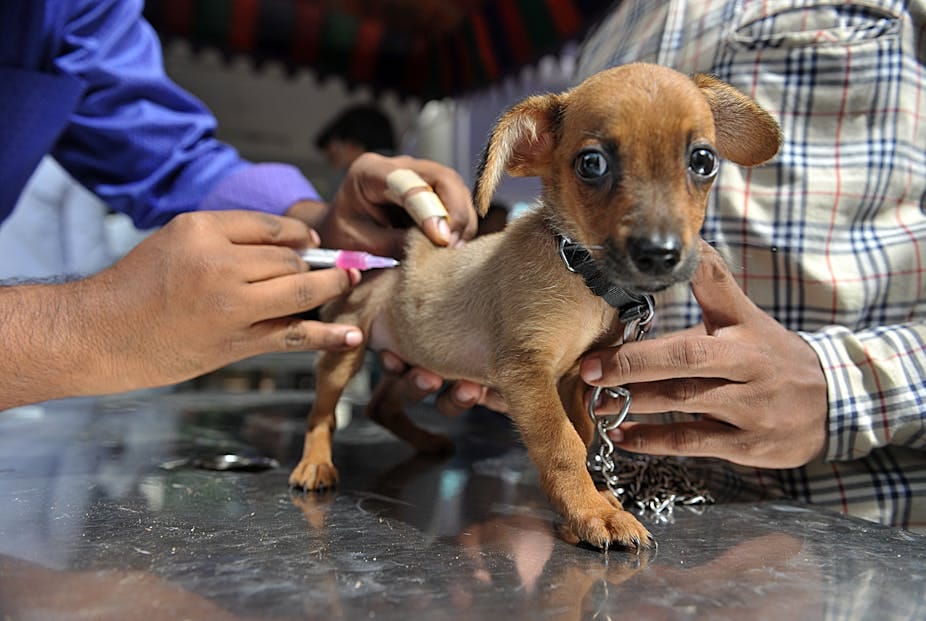Vaccines are a cornerstone of preventative healthcare, safeguarding both humans and their beloved pets. While the benefits of vaccination for humans are widely recognized, a growing concern is emerging: vaccine hesitancy among pet owners. This article delves into the increasing trend of pet owners questioning or declining vaccines for their dogs and cats, exploring the potential consequences for individual animals and public health.
Drawing on recent research, we’ll examine the prevalence of vaccine hesitancy in the pet owner community, the reasons behind this trend, and the potential risks associated with under-vaccination. This article will also discuss the crucial role of veterinarians in addressing pet owner concerns and promoting responsible pet ownership.
Understanding Vaccines and Their Importance for Pets
Vaccines work by stimulating the immune system to produce antibodies that protect against specific diseases. In pets, core vaccines are essential for preventing life-threatening illnesses such as rabies, parvovirus, and distemper. These diseases can cause severe suffering, permanent disability, and even death in unvaccinated animals.
Beyond individual protection, vaccines also contribute to herd immunity, safeguarding vulnerable animals that cannot be vaccinated, such as puppies and kittens. When a large percentage of the pet population is vaccinated, it reduces the spread of infectious diseases, protecting the entire community.
The Rising Tide of Vaccine Hesitancy Among Pet Owners
Recent studies reveal a concerning increase in vaccine hesitancy among pet owners. A significant percentage of dog and cat owners express doubts about the safety and effectiveness of vaccines, leading to lower vaccination rates in some regions. This trend mirrors the vaccine hesitancy observed in human populations, raising questions about the underlying factors driving this phenomenon.
Several factors contribute to vaccine hesitancy, including misinformation, distrust in authority, and concerns about potential side effects. Social media and online forums can amplify these concerns, creating echo chambers where misinformation spreads rapidly. Addressing these concerns requires a multi-faceted approach that combines accurate information, transparent communication, and building trust between pet owners and veterinarians.
Exploring the Reasons Behind Vaccine Hesitancy in Pet Owners
Pet owners’ concerns about vaccines often stem from various sources, including:
- Safety Concerns: Some pet owners worry about potential side effects from vaccines, ranging from mild reactions to more severe complications.
- Effectiveness Doubts: Others question the effectiveness of vaccines in preventing disease, particularly if they have heard anecdotal stories of vaccinated pets still contracting illnesses.
- Misinformation: Online misinformation and conspiracy theories can fuel distrust in vaccines and promote alternative, unproven methods of disease prevention.
- Over-vaccination Concerns: Some pet owners believe that pets receive too many vaccines, increasing the risk of adverse reactions.
Understanding these concerns is crucial for veterinarians to effectively address pet owner questions and provide personalized recommendations based on individual pet needs and risk factors.
The Risks of Under-Vaccination for Pets and Public Health
When pet owners choose not to vaccinate their animals, they expose them to a higher risk of contracting preventable diseases. This can lead to severe illness, long-term health problems, and even death. Unvaccinated pets can also become carriers of infectious diseases, spreading them to other animals and potentially to humans.
Rabies, in particular, poses a significant threat to public health. Unvaccinated pets can contract rabies from wildlife and transmit the virus to humans through bites or scratches. Rabies is fatal if left untreated, highlighting the importance of vaccinating pets against this deadly disease.
The Role of Veterinarians in Addressing Vaccine Hesitancy
Veterinarians play a crucial role in addressing vaccine hesitancy among pet owners. They are trusted sources of information and can provide personalized recommendations based on individual pet needs and risk factors. Veterinarians can also dispel misinformation, address concerns about vaccine safety and effectiveness, and build trust with pet owners.
Effective communication is essential for addressing vaccine hesitancy. Veterinarians should actively listen to pet owner concerns, provide clear and concise explanations, and use evidence-based information to support their recommendations. They should also be empathetic and understanding, recognizing that pet owners may have legitimate concerns about vaccines.
Promoting Responsible Pet Ownership Through Education and Outreach
Addressing vaccine hesitancy requires a comprehensive approach that involves education, outreach, and community engagement. Public health campaigns can raise awareness about the importance of pet vaccinations and dispel common myths and misconceptions. Community events, such as free vaccination clinics, can make vaccines more accessible to pet owners.
Ultimately, promoting responsible pet ownership is key to increasing vaccination rates and protecting the health of both pets and the community. By providing accurate information, addressing concerns, and fostering trust, we can empower pet owners to make informed decisions about their animals’ health.
Conclusion: Addressing Vaccine Hesitancy for a Healthier Future
Vaccine hesitancy among pet owners is a growing concern with potential consequences for individual animals and public health. Addressing this trend requires a multi-faceted approach that combines accurate information, transparent communication, and building trust between pet owners and veterinarians. By promoting responsible pet ownership and fostering a culture of vaccination, we can protect the health of our beloved animal companions and safeguard the well-being of our communities.
